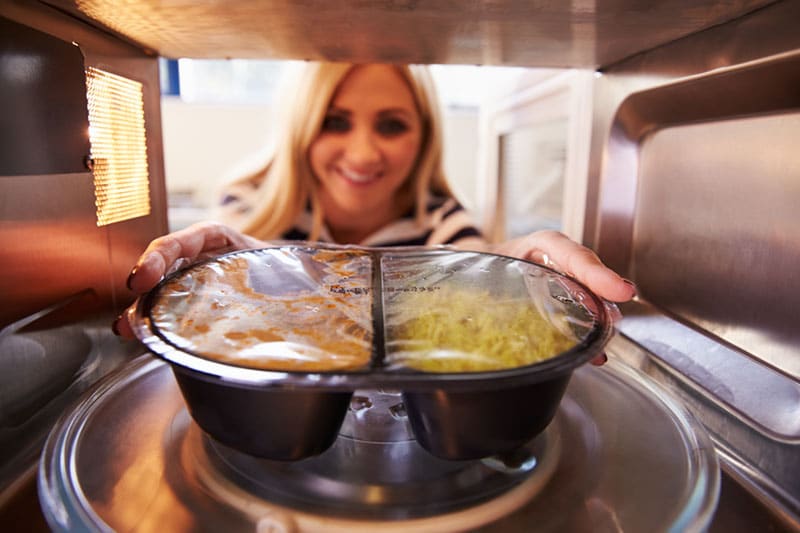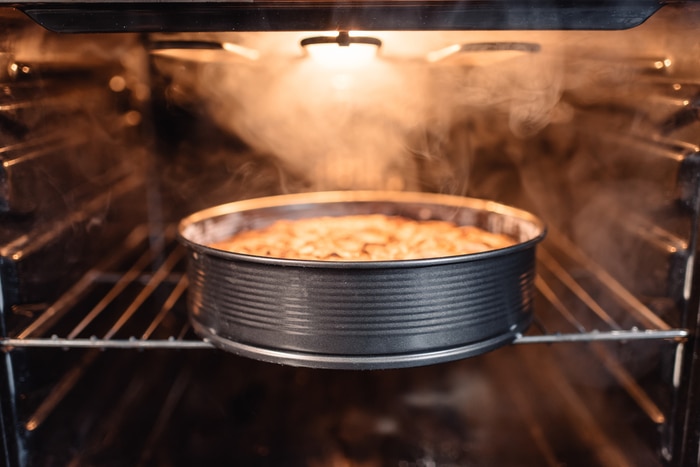We've independently reviewed this article to make sure it's as accurate as we can make it.
To find out more about our article creation and review process, check out our editorial guidelines.
Are you trying to understand the differences between microwaves and ovens?
Ovens and microwaves can be great when cooking food, but understanding their differences can be tricky.
Luckily, you’ve come to the right place for answers.
The main differences between microwaves vs ovens are their heating method and cooking capability. Microwaves use electromagnetic waves and are great for reheating food, while ovens use a heating element and are more versatile.
Read on to learn more about other differences and make the right choice!
Why trust us? This article was written by Craig Anderson and James Blackford.
Craig has helped thousands of other homeowners repair their appliances since 2016. James is one of our resident appliance experts with over 16 years of experience. He currently works as a Master Technician for SquareTrade, and runs his own appliance repair business.
Ovens vs Microwave
You wouldn’t believe how many people I’ve come across who have struggled to understand the differences between ovens and microwaves.
If that’s your case, don’t worry – I’m here to help! In this section, you’ll learn all the important details that set these two appliances apart.
#1 Heating Method
I often tell homeowners that the biggest difference between microwaves and ovens is how they heat food.
You see, microwaves use super-fast electromagnetic waves (“microwaves”) that cause the water molecules in your food to vibrate rapidly, which generates heat. On the other hand, ovens have a heating element that warms up the air inside to cook the food.
These heating methods influence their cooking speed and capability. I recommend considering these factors when deciding between a microwave vs an oven.
#2 Reheating
When comparing microwaves vs ovens, I tend to find that microwaves are almost always better at reheating food.
If you’re reheating food, you know it’s already cooked through. You don’t need to worry about raw meat or food-borne disease. All you need is for your food to be hot. Microwaves can do that and do it quickly.

Ovens can reheat food, too, of course. But it won’t be quick.
For example, reheating frozen pizza in an oven can take over 18 minutes, whereas microwaving it can take 7 minutes*.
*Bear in mind that the specific cooking times will vary depending on the microwave or oven you own.
It’s worth mentioning that if you’re trying to reheat an entire casserole, an oven is more efficient. It can also help you avoid soggy fries.
Verdict: Microwaves reheat single servings quicker and more efficiently, while ovens can handle large portions.
#3 Capacity
When deciding between an oven and a microwave, I recommend keeping in mind the capacity of each appliance, especially if you have a large family.
Ovens are the way to go if you tend to cook large dishes. They can cook things through without cold spots or the need to stir.

Cooking with microwaves, on the other hand, is inefficient when it comes to large, solid dishes.
But if you’re like me and tend to cook for one or two people, microwaves can be your best friend.
Heating an oven to full temperature and keeping it there to cook a single serving of something wastes your time and electricity.
Verdict: Ovens are great for cooking large dishes, while small dishes are best cooked in the microwave (as long as you’re not cooking raw meat).
#4 Versatility
Another main difference between microwaves and ovens is their versatility.
Microwaves are great for reheating food, but they are typically unable to handle more complex cooking tasks like baking*. On the other hand, ovens can be used for baking, roasting, broiling, and more.
That’s because microwaves excite the water in your food and keep the edges from turning brown and tasty. Ovens don’t have that problem.
*Some modern microwaves have additional features that allow you to perform other cooking tasks, such as baking. But, keep in mind that not all microwaves have this capability.
So, if you’re trying to achieve browning and crispy textures on your food, I recommend getting an oven, as it can easily create a crust or crisp outer layer.
Verdict: Ovens are more versatile as they can be used for different purposes.
#5 Maintenance
When choosing between a microwave vs an oven, you need to keep in mind its maintenance.
Although the maintenance requirements can vary depending on the type of oven or microwave you own, ovens typically require more frequent maintenance because they have more components that can break out over time.
In my opinion, cleaning an oven can also be a bit harder and more time-consuming than cleaning a microwave because they have a larger interior space and more components.
Verdict: While both ovens and microwaves need maintenance to ensure they work properly, ovens can require more frequent maintenance than microwaves.
#6 Lifespan
Another difference you need to consider when comparing ovens vs microwaves is their lifespan.
While their lifespan can vary based on factors such as brand, model, frequency of use, and maintenance, I’ve found that ovens generally outlast microwaves.
With proper care, microwaves can last around 10 years, whereas a well-maintained oven can endure for over 15 years due to its sturdier build quality.
Verdict: While the lifespan of both appliances can vary, ovens typically last longer than microwaves.
Can a Microwave Replace an Oven?
Microwaves can sometimes substitute for ovens, depending on the circumstances. You’ll need to choose foods that work well in the microwave.
For example, you should never cook raw meat in the microwave. That’s one situation where the oven will always win. By the time the center of a piece of raw meat is cooked in a microwave, the edges will be dry and burnt.
Also, microwaves won’t kill all the dangerous bacteria in raw meat. For those types of recipes, stick with an oven.
On the other hand, if you’re cooking something that can be stirred, then a microwave can be fine. Many boxed casserole recipes can be made in the microwave, for example. So, you can cook some large dishes that normally go in the oven.
Cooking large dishes in the microwave will take a while, but it’s doable.
Are Microwaves More Efficient Than Ovens?
When cooking food, the cheaper option is the most efficient option.
If you already have an oven and a microwave, I recommend choosing the option that cooks your food thoroughly in the shortest amount of time to keep your electricity costs down.
For example, it wastes a lot of energy to heat up your entire oven to cook a single Hot Pocket. On the other hand, you’ll cook a large meal less efficiently in the microwave vs. oven. The quicker cooking method usually winds up being the cheapest.
If you don’t have a microwave or an oven, you need to consider the cost of the appliance. Microwaves are almost always cheaper to buy and install.
Ovens will be more expensive upfront unless you’re looking at something like a microwave drawer.
Click here to know how much exactly it costs to run your microwave!
Conclusion
Choosing between a microwave vs an oven doesn’t have to be confusing. They’re both useful daily tools with different strengths and weaknesses.
One of the main differences between a microwave and an oven is that the latter is more versatile and great for large meals. Microwaves, on the other hand, are at their best with quick, small portions.
If this content has helped you, please support us by checking out some related articles below.
Thank you so much for reading, have a great day!







